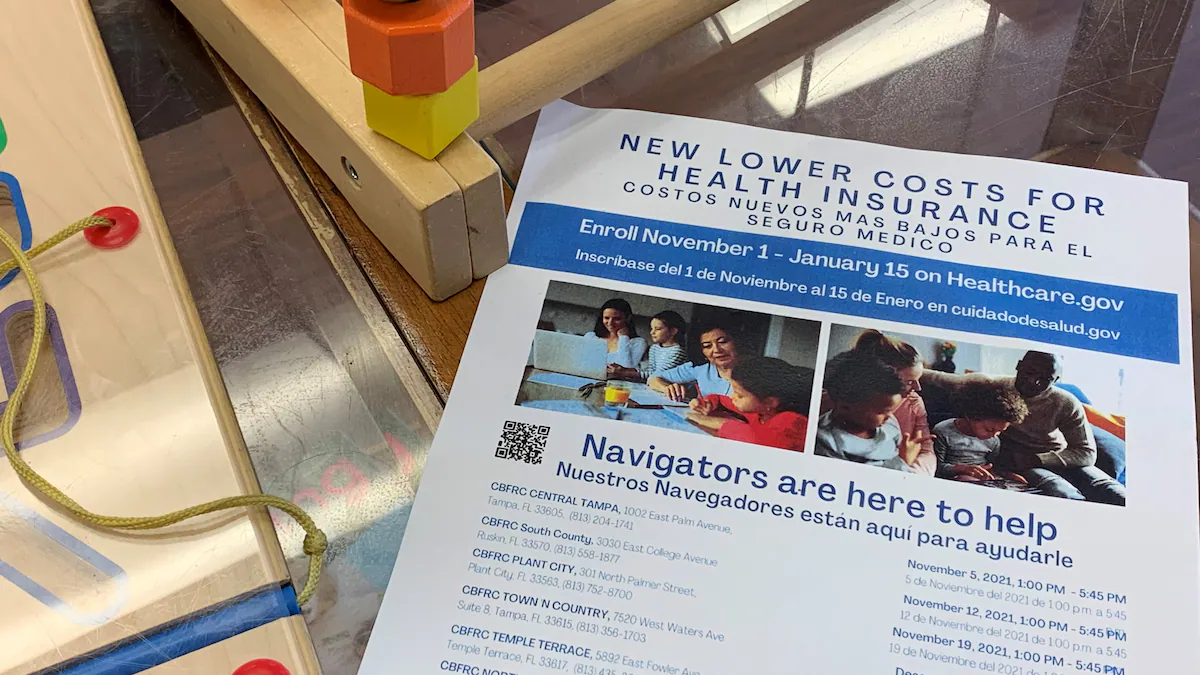
Why many Floridians would lose health care under Trump plan after all
How did your country report this? Share your view in the comments.
Diverging Reports Breakdown
Why many Floridians would lose health care under Trump plan after all
About 2 million Floridians on Health Insurance Marketplace plans could lose coverage in the next decade. That’s far more than those who would lose Medicaid. Florida ranks seventh in projected health insurance losses per capita. The House-approved bill alone would strip coverage from about 1 in 25 Floridian, KFF estimates. The proposal represents a significant transfer of wealth from lower-income Americans to those with higher incomes, experts say.. Nearly half of respondents thought the tax and budget proposals would “not make much difference” for people who buy their own health insurance. One in three who do said they have heard “nothing at all” about expiring tax credits, a KFF vice president said. For an individual in Florida earning $15,000 annually and paying nothing out of pocket for a premium plan, the House bill passing plus subsidies expiring would mean they pay $432 a year.
Here, it’s Affordable Care Act changes — including expiring tax credits and stricter enrollment rules — that will kick more people off their insurance. About 2 million Floridians on Health Insurance Marketplace plans could lose coverage in the next decade under proposed laws, experts estimate, far more than those who would lose Medicaid. Though the balance is different, Florida remains near the top of states in expected enrollment losses per population.
Nationally, the “One Big Beautiful Bill Act,” championed by President Donald Trump and House Republicans as a way to reduce federal spending, would strip 10.9 million Americans of their health insurance, the Congressional Budget Office projects. That includes 7.8 million people losing Medicaid and another 3.1 million falling off marketplace plans. The proposal represents a significant transfer of wealth from lower-income Americans to those with higher incomes.
“It would certainly be the biggest cut in federal spending on health programs ever,” said Cynthia Cox, a vice president at KFF, a nonprofit health policy research and news organization.
The House approved the latest version of the bill in May.
Compared to those in states that have expanded Medicaid, Florida’s low-income adults are much more likely to buy private plans on the marketplace. Republican officials in Florida have pointed out new Medicaid work requirements won’t affect the state as much as a result.
But the Affordable Care Act changes will. Stricter rules would eliminate a grace period to prove accurate income while maintaining coverage, particularly affecting seasonal and small business workers. Separately, expiring tax credits will shift costs from the government to the policyholder, pricing out many customers.
“There are folks, for some reason, paying less attention to the impact in the marketplace. The impact in the marketplace (in Florida) is larger,” said Ellen Montz, a former Centers for Medicare & Medicaid Services official now managing director for Manatt Health. “And it comes now.”
The House-approved bill alone would strip coverage from about 1 in 25 Floridians, KFF estimates — and that’s not counting the other policy changes.
Florida ranks seventh in projected health insurance losses per capita. Of the top 10 states, Florida is the only one where most of those are marketplace plans.
Many who don’t lose coverage will have to pay more.
Montz said the costs could be devastating. For an individual in Florida earning $15,000 annually and paying nothing out of pocket for a premium plan, the House bill passing plus subsidies expiring would mean they pay $432 a year.
“That’s like an infinity change, right? It’s a big deal. When you’re thinking about somebody spending 2% of their $15,000 income on health insurance, that’s tough when you got rent and other things,” Montz said.
The Trump administration has said the measures would reduce “fraud, waste and abuse” in the programs by bolstering work and income verification requirements.
But Matthew Buettgens, senior fellow in the Health Policy Division at the Urban Institute, said the new rules are more likely to push out customers that meet the requirements but face administrative barriers.
“For many of those provisions, it is not clear how that reduces waste, fraud and abuse,” Buettgens said.
Experts worry the impacts may catch marketplace customers off-guard.
In a recent KFF poll, nearly half of respondents thought the tax and budget proposals would “not make much difference” for people who buy their own health insurance. One in three who do said they have heard “nothing at all” about expiring tax credits.
“No matter how much people try to communicate about these changes coming, I think it’ll be a very large sticker shock there for folks coming in a few months,” Montz said.
